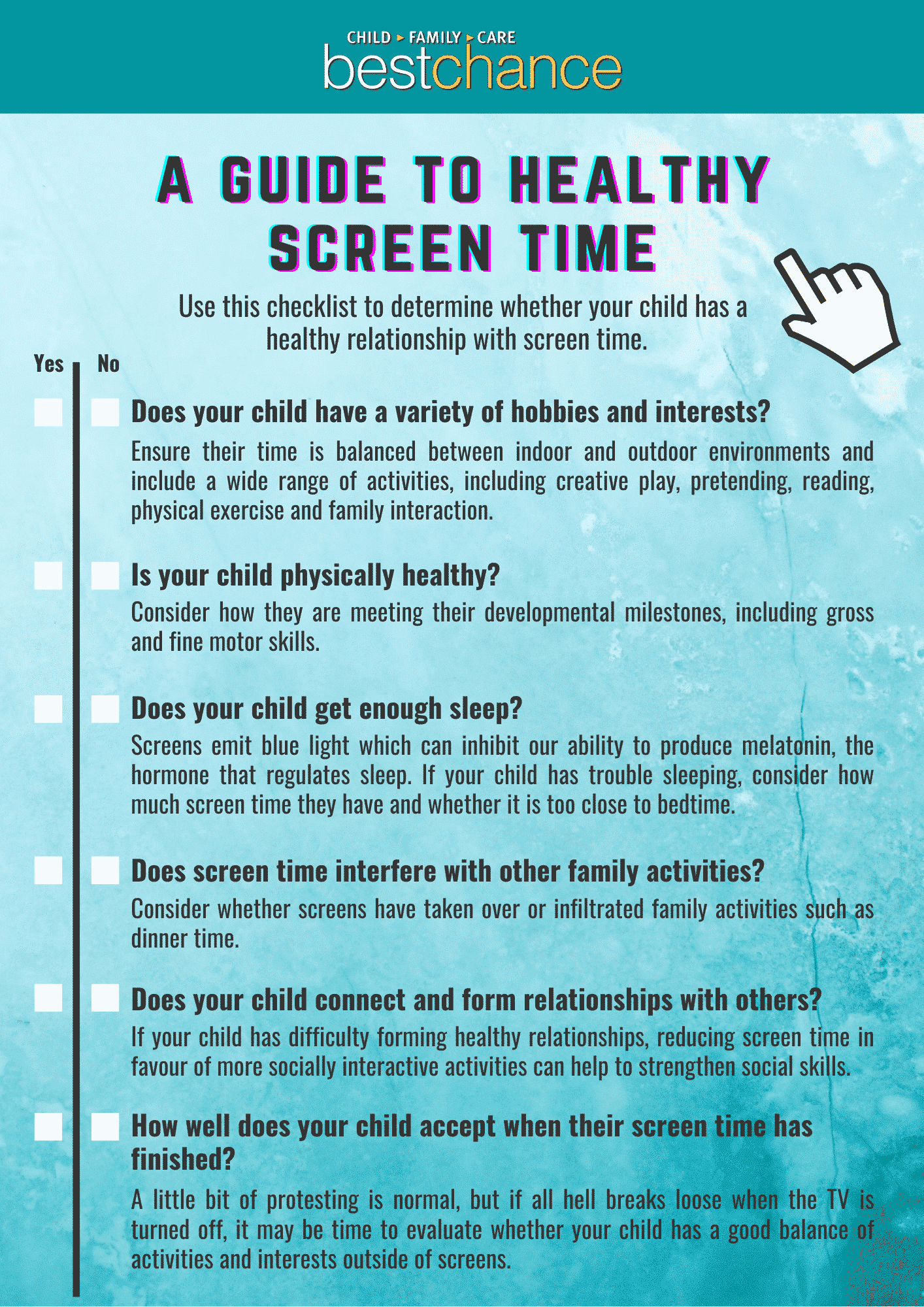Screen Time:
Maintaining healthy screen usage when
children are stuck at home
by sam d'rosario, mum of one
Being a first time mum, I was overly anxious about letting my son have any screen time. I had flashbacks of my mother telling me I’d get “square eyes” from watching too much TV. I’d feel guilty using the TV as a distraction for my toddler so I could finally get some time for those luxuries in mum-life… like taking a shower!
It took me a while to adjust to the fact that screen time is not just inevitable, but also a core tool in our education system. So exposure to screens can be a beneficial – in moderation!
Queue my next wave of anxiety: how much is too much? What about frequency? Can it be a short period of time every day? Or is it supposed to be a once-a-week type situation?
Because I work in the corporate office of bestchance Child & Family Care, I consulted the expertise of our early childhood educators and therapists.
Here’s what I learned:
Variety of play is vital
Screen time is fine when balanced with a wide variety of other forms of play, both indoors and outdoors.
These forms of play need to include physical exercise and movement, and opportunities to be creative, use their imagination, explore and problem-solve. Opportunities to interact and communicate with others are also important to include regularly in order to build social skills.
Here’s an example of balanced, varied play that allows for healthy skills development:
- Physical activity: running races, hide and seek, climbing, jumping, dancing, kicking and throwing a ball, going for a walk, riding a bike, obstacle courses, play equipment.
- Creative/Imaginative play: drawing, painting, construction, dress ups, pretending, role playing, cooking, storytelling, singing.
- Problem solving: puzzles, building blocks, pattern games, lego, basic writing activities, inventing, construction activities.
- Socialising: playing with siblings, going for walks, playgroups, parks, visiting family, interacting with staff at shops. Obviously, our restrictions during lockdown has made socialising difficult, but even phoning a friend, greeting a neighbour, or engaging in conversation at the park is helpful.
Set rules for the whole family
Everyone in a family needs to model the behaviour that we want younger children to learn. Therefore having the whole family agree on some basic rules of screen usage will help maintain balance for the entire household.
Rules for screen time can be simple guidelines of where, when, and what.
- Where: You might specify that screens can only be used in communal areas and never in the bedrooms.
- When: Set the appropriate times for all family members. For younger children, the rule might be that screens are not allowed before preschool. For school-aged children it might be that all homework and chores must be completed first. For the whole family, you can set a rule of no screens during meal times. Setting a timer is also a good way to manage children’s expectations for how long they have using screens. This way it is not a surprise when their time is up.
- What: There is plenty of educational content available for children of all ages. Ensure that the content is age appropriate.
The Screen/Sleep Connection
Most screens emit blue light, which inhibits our ability to produce melatonin, the hormone that regulates sleep. Setting a two-hour window of screen free time before bed will help reduce the potential for blue light to have an effect.
So what’s the key takeaway from my conversation with the Early Years experts?
Don’t be too hard on yourself as a parent, especially while we navigate lockdowns during a pandemic!
While we are stuck inside, working and schooling from home, it is understandable that we might be resorting to a bit more screen time than usual. If you are still concerned about creating dependency on screens for entertainment, the below resource is a great way to have a regular check-in as parents to ensure we are still maintaining balance.

And always remember, parenting is hard but you got this!
If you have a parenting or child-development question, write to us at enquiries@bestchance.org.au and we will consult our expert educators, teachers and therapists to help.

